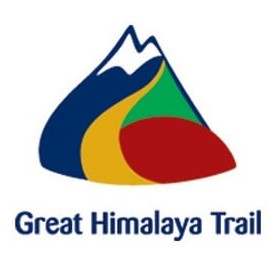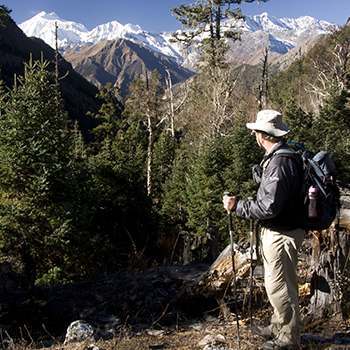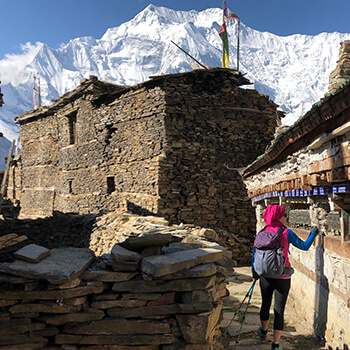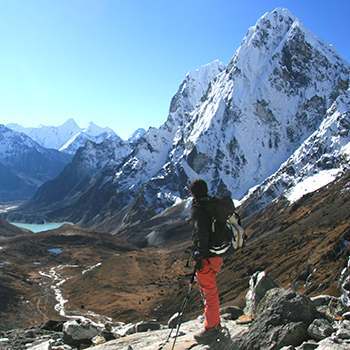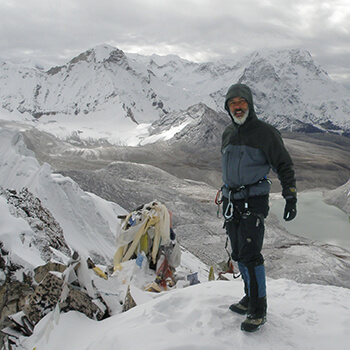Give Something Back
Many people who visit Nepal, Bhutan or India fall in love with both the country and her people. The level of poverty and tragic circumstances that some of the locals are suffering from often results in a desire to help – to give something back. Within Nepal, there are many ‘pro-poor’ or ‘poverty alleviation’ programs (both are appalling names for good concepts) throughout the country. There are also many community development schemes, from emergency stretchers to installing toilets and water pipes. Plus there are things that you can do on an individual level, but please make sure that you are solving and not perpetuating problems.
The GHT helps local communities by encouraging trekkers to visit areas ‘off the beaten track’. We believe that any help is better than no help. Nearly all programs and initiatives currently operating in Nepal rely on donations and volunteer assistance. So, if you want to get involved and make a positive difference there is always a way to give something back.
If you are providing support to someone attempting the GHT why not offer your services to a local organisation? For Nepal, to check out if a charity is registered correctly and currently operating check out:
- www.ngofederation.org lists registered Nepali NGOs that are more likely to be reputable from the more than 50,000 listed by the government.
- ww.ain.org.np lists registered International NGOs that are currently active in the country.
The GHT and MyGHTi Project
On a final note, this website and the promotion of the MyGHTi Project and GHT treks is entirely voluntary. The sale of maps and books goes to pay for hosting, plugins and internet services (email, etc) and the cost of production by Himalayan Map House in Kathmandu. If you would like to donate, help, research trekking areas, or anything else that you think will help promote the GHT, please Get in Touch.
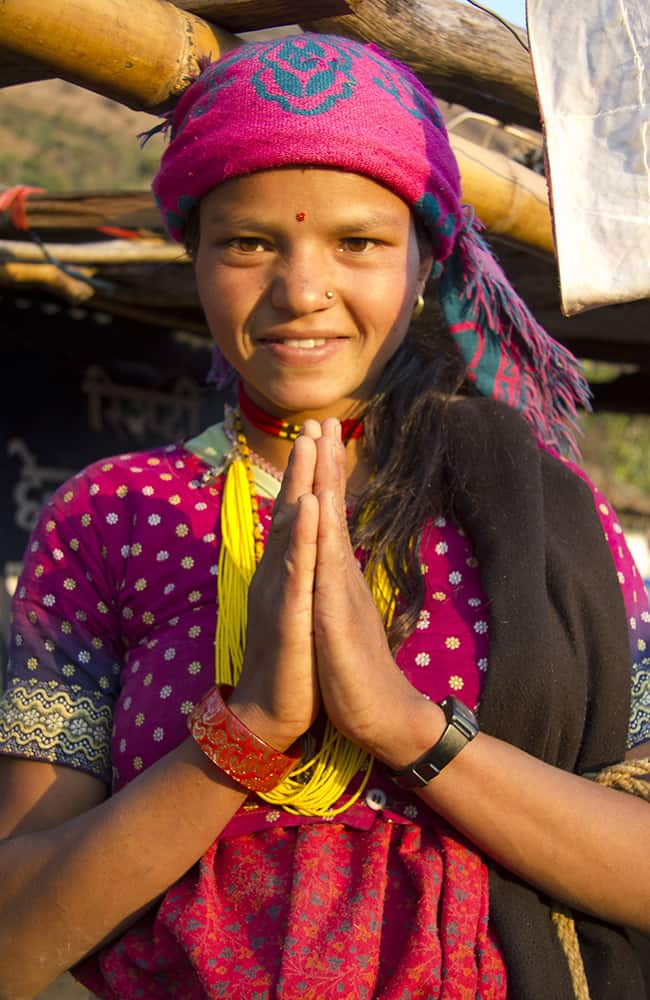
By doing the GHT you are already giving something back through your local payments. Even a small amount of money can have a big impact in a remote community. To learn more about the social and environmental impacts of your trek see The Impact of Your Trek and each trek description.
Who to Help?
The financial benefits to a community are obvious in the main trekking regions of Everest, Annapurna and Langtang. In the remoter regions of the GHT, it becomes apparent that even US$10 can make a difference. By spreading tourist dollars the GHT helps to alleviate poverty and address the enormous wealth disparity in the Himalaya.
The GHT offers many opportunities to support almost countless causes along the trail. Two types of support are popular; direct cash contributions or purchases, or sponsorship of your trek. If you choose to help a local NGO you should carefully check its credentials. Below is a list to help point you towards some interesting organisations that the author can personally vouch for:

Give Something Back – Suggestions to Get You Started!
For ideas of who to help in Bhutan and India, please Get in Touch and we’ll try to help.
Local NGOs in Nepal:
- Kathmandu Environment Education Project (KEEP: www.keepnepal.org) works to ensure the future ecological and cultural prosperity of Nepal and its people. KEEP seeks to maximise the benefits and reduce the negative impacts associated with tourism.
- Maiti Nepal (www.maitinepal.org) prevents human trafficking by reaching out to the community, particularly children and women. Maiti Nepal raises the awareness level of communities and extends life skills so that children and women are not trafficked into different forms of abuse, including exploitation.
- Phase Nepal (www.phasenepal.org) operate throughout Nepal to improve the livelihoods of rural people by providing immediate support through health care and education services. Phase Nepal also creates opportunities in communities for self-empowerment.
- Radha Paudel Foundation (www.radhapaudelfoundation.org) created by an inspiring social activitist, the RPF works tirelessly for emancipation of girls and women from poverty, injustice and discrimination across Nepal.
- Right4Children (R4C: www.right4children.org) is based in Pokhara and dedicated to improving the lives and living standards of disadvantaged children, youth and their families. R4C develop programs and services that recipients feel are right for them, to make their hopes and dreams come true.
- Shakti Samuhar (www.shaktisamuhar.org.np) is the world’s first organization which has been established and run by the survivors of human trafficking. Shakti Samuhar works to ensure social justice for victims and those who are at high risk of such trafficking by empowering, informing and organising women and girls at community level.
INGOs working in Nepal:
- Australian Himalayan Foundation (www.australianhimalayanfoundation.org.au) runs a number of projects in education, health & medical services and the environment. Focusing on the lower Solu-Khumbu area, it aims to ensure the long-term viability of schools, to provide health and medical services, and to support environmental projects.
- The Hillary Himalayan Trust (www.himalayantrust.co.uk) founded by Sir Edmund Hillary is perhaps the most famous of the INGOs operating in Nepal. Its successes in the Solu-Khumbu have been outstanding and are considered to be a model for best practice.
- International Porter Protection Group (IPPG; www.ippg.net) works to improve the conditions of mountain porters in the tourism industry worldwide and is very active in Nepal. With representatives throughout the world, it is possible to assist this organisation both at home and overseas.
- The Mountain Institute (TMI; www.mountain.org) empowers communities in the Himalayas (and elsewhere around the world) through education, conservation and sustainable development. For more than 38 years, TMI has worked closely with the people who know mountains best, those who live there. They focus on solutions that threaten livelihoods and the health of local environments.
- Ten Friends (www.tenfriends.org) is a group of people who work in the Sankhuwasabha (between Kanchenjunga and Makalu) and Kathmandu, and who first started donating emergency stretchers to remote villages. They are involved with orphanage and school programs, water filtration, sanitation and female empowerment projects.
You’ve Completed First Decisions!
Amazing! Well done! Hopefully by now you have a clear plan and it’s time to start considering those all important Pre-Flight issues. Don’t panic, we’ve got it all covered!
